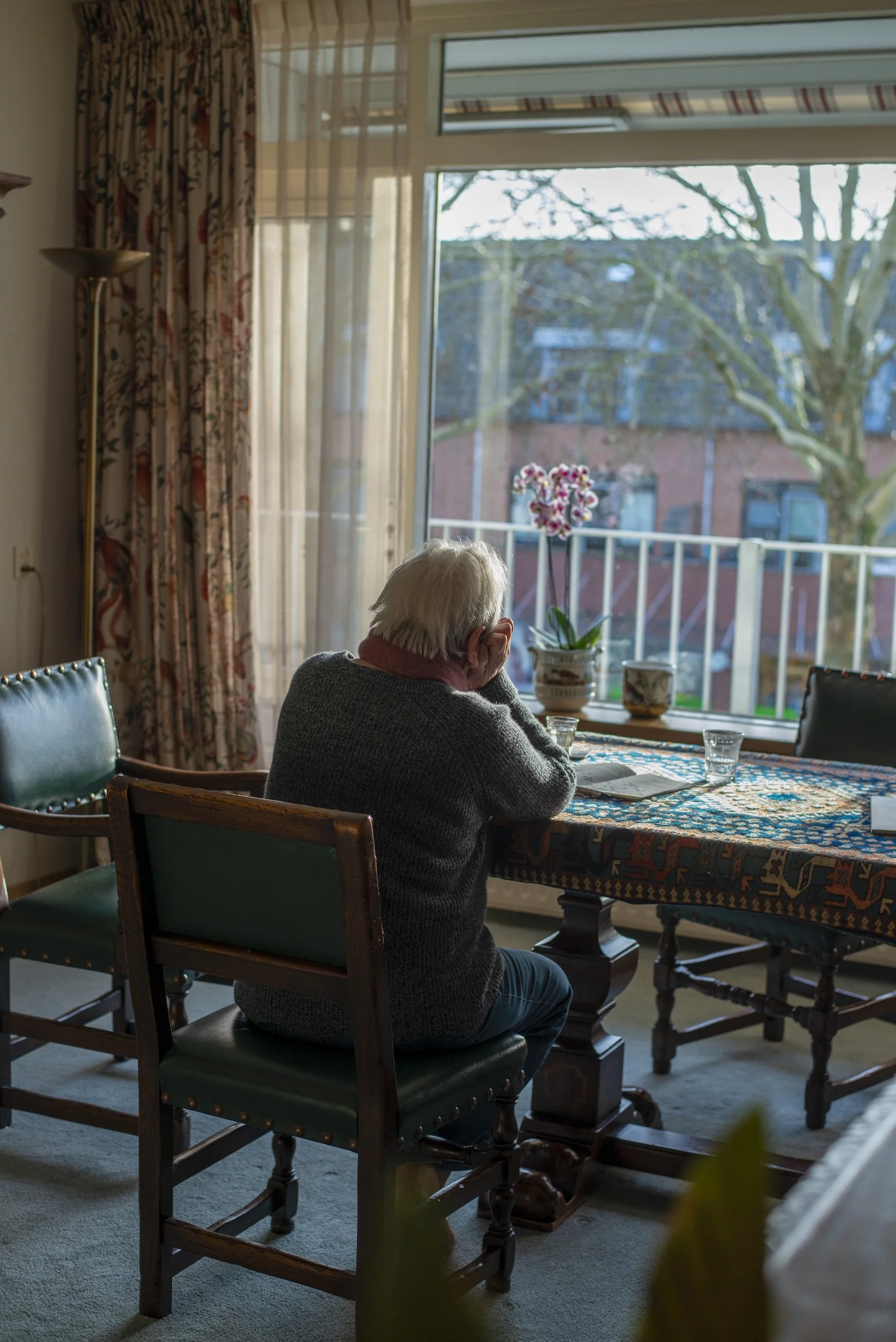
Members' Rights: Principles, Practices, and Gray Areas within European Cooperatives
The Two Souls of Cooperation: Democratic Ideals and the Risk of Abuse
The cooperative movement is rooted in a solid tradition of values such as democracy, equality, equity and solidarity, as stipulated by the International Cooperative Alliance (ICA). These principles represent the promise of an alternative business model that places people at the heart of its actions, distinguishing itself from traditional capital-based companies that primarily aim to maximize profits. The pillar of this model is the democratic control exercised by its members, summarized by the "one person, one vote" principle, which embodies the ideal of a real and participatory economic democracy.
However, there is a frequent and problematic divergence between these noble ideals and the reality of management. Cooperatives, despite a history dating back to the industrial revolution, are not immune to oligarchic tendencies and governance practices that betray their original mission. Operating in increasingly competitive markets, cooperatives experience an intrinsic tension between pursuing the mutualistic goal—that is, providing direct benefits to their members—and the need to be efficient and profitable to survive and grow. This duality provides fertile ground for abuse, where Boards of Directors (BoDs) can act in a self-referential manner, justifying decisions that marginalize the membership base in the name of alleged "managerial efficiency."
In this context, the European Observatory for Transparency in Cooperatives (OETC) positions itself as a monitoring and support entity, created to oversee this structural tension and to provide members with the cognitive and legal tools necessary to defend their fundamental rights. This report aims to analyze the nature of cooperation in Europe from the member's perspective, highlighting best practices but, above all, shedding light on the grey areas, vulnerabilities, and risks of abuse that threaten the integrity of the cooperative model.
The European Regulatory Framework: Unfinished Harmonization and its Implications for Members
The European legislative landscape for cooperatives is characterized by an attempt at harmonization that, however, remains largely unfinished. While on one hand there are universal principles, on the other, the strong dependence on national regulations creates a heterogeneous patchwork of protections, with significant consequences for members' rights.
The ICA Cooperative Principles as a Legal and Ethical Foundation
The seven cooperative principles defined by the International Cooperative Alliance (ICA) are not merely ethical declarations but constitute the conceptual foundation upon which national legislations and the very identity of the cooperative are built throughout Europe. Their analysis is essential to understanding the scope of members' rights.
Principle 2: Democratic Power Exercised by Members. This is the heart of the cooperative's unique identity. The "one person, one vote" principle, regardless of the capital subscribed, is the supreme expression of economic democracy. However, its effectiveness is often compromised by low participation in general meetings, a phenomenon that can render the right to vote meaningless and leave the field open to entrenched management groups. Cooperative democracy is not a given, but a practice that requires active and sustained commitment.
Principle 3: Economic Participation of Members. The member has a dual role: they are both an investor of capital and a user of the cooperative's services. This principle establishes their right to participate in the economic results, not so much through maximizing the return on capital (dividends are, by statute, limited), but through "patronage refunds." Patronage refunds represent the return to members of the benefits derived from the mutual exchange and constitute a fundamental economic right. Their quantification and distribution, however, are often a discretionary decision of the Board of Directors, opening the door to possible opacity and to management that does not adequately prioritize the member's benefit.
Principle 5: Education, Training and Information. This principle is the prerequisite for the effective exercise of all other rights. An uninformed or untrained member cannot consciously participate in decision-making, nor effectively oversee the actions of the directors. The information asymmetry between a professional Board of Directors and a non-specialized membership base is one of the greatest risk factors. The lack of transparency and training initiatives is not mere negligence, but a direct cause of the weakening of members' power and a catalyst for potential abuse.
Cooperatives are not immune to oligarchic tendencies and governance practices that betray their original mission.
Comparative Member Rights: Italy, France, and Other European Models
A comparative analysis of national legislations reveals how, despite starting from common principles, the rights and vulnerabilities of members can vary significantly. Italy and France, two countries with a strong cooperative tradition, offer a prime example of these differences, which can be further explored by comparing them with the housing cooperative models in Germany and Spain.
The Italian Legal Order: Formal Rights and Substantive Challenges
Italian legislation, in particular the Civil Code (art. 2511-2548), formally recognizes a wide range of rights for cooperative members.
Administrative Rights Members have the right to vote per capita ("una testa, un voto") in general meetings, to participate in discussions, to challenge invalid resolutions, and to be elected to corporate positions. One of the most powerful tools for individual oversight is the
Right of Inspection which allows the member to examine the corporate and accounting records (register of members, minutes of the general meeting and the Board of Directors). This right, however, is often hindered in practice by Boards of Directors that impose bureaucratic barriers or restrictive interpretations, thereby limiting its effectiveness.
Economic Rights Members are entitled to a limited return on their paid-in capital and, above all, to benefit from patronage refunds, which represent the redistribution of the mutual benefit. Their determination, however, is the prerogative of the General Meeting upon the proposal of the Board of Directors, which enjoys wide discretion in the calculation and may decide to allocate them to reserves, even when not strictly necessary, thus reducing the direct benefit for members.
The Worker-Member A unique feature of the Italian model is the figure of the worker-member (socio-lavoratore), whose relationship with the cooperative is twofold: as a member and as an employee. This duality creates a strong interdependence: the termination of the employment relationship, for example through dismissal, can statutorily lead to exclusion from membership. This condition creates considerable vulnerability, as the fear of losing one's job can discourage the member from exercising their rights to critique and oversee the management.
The French Legal System: The Principle of Exclusivity and the Strength of the Bond
The French cooperative system, based on the framework law of 1947, is characterized by an even closer bond between the member and the cooperative.
The Obligation of Activity (Exclusivity) The principle of exclusivity requires the member to deliver all or a predefined part of their production or to use the cooperative's services exclusively. This reciprocal commitment is the foundation of the economic relationship, which is not considered commercial but as a contribution. While this guarantees the cooperative stable volumes and strengthens its market position, it also strongly binds the member. Withdrawal (departure) before the end of the commitment period is strictly regulated and may result in the payment of significant financial penalties.
Rights and Governance In France, the "one person, one vote" principle and a democratic structure are also in force. Governance, however, is often complex, and the board of directors holds very strong management power. Unlike in Italy, there is no financial instrument analogous to the "member loan" (prestito sociale), which indicates a different culture of financing by members.
Protection Mechanisms The French legal system provides for structured oversight tools. The "cooperative audit" is a mandatory periodic audit (usually every 5 years) that is not limited to accounting aspects, but verifies the compliance of the management with cooperative principles and rules. In addition, the figure of the "cooperative mediator" (médiateur de la coopération) has been established, an authority to which members can turn for the amicable resolution of disputes with their cooperative.
The comparative analysis reveals a common dynamic: the "loyalty trap". Both the work obligation for the Italian worker-member and the contribution obligation for the French member, although being the backbone of the mutualistic relationship, can be instrumentalized by abusive governance. The member is not a simple investor who can freely disinvest; their link is existential (work) or economically binding (contribution obligation).
This dependence considerably reduces the propensity to "vote with their feet" and leave, as withdrawal would entail the loss of their job or heavy penalties. Consequently, dissent is discouraged, and the power of the leadership is consolidated, not on the basis of consensus, but on the basis of the binding tie.
The fear of losing a home with a very advantageous rent can deter the member from exercising their rights of oversight and criticism over the management.
Moderate-Rent Housing Cooperatives: A European Comparison
One specific sector where the cooperative model offers concrete answers to primary social needs is housing. Moderate-rent housing cooperatives, or social housing, represent a "third way" between market-rate rentals and public social housing, aimed at those segments of the population who cannot access the former but do not qualify for the latter. An analysis of this model in Italy, France, Germany, and Spain reveals different approaches but common objectives.
France In France, the sector is dominated by HLM (Habitation à Loyer Modéré) cooperatives, which operate as approved social housing organizations and benefit from state subsidies and assisted financing, such as from postal savings (Livret A). Alongside this structured model, forms of "participatory housing" are developing, where groups of residents self-organize to develop ecological and democratic housing projects. In these cooperatives, the members are both collective owners of the building and individual tenants of their homes, paying rent to the cooperative to repay loans and cover expenses.
Italy The Italian model is based on partnerships between cooperative enterprises and municipalities to create controlled-price housing. There are two main types of rental: permanent, with open-ended contracts, and fixed-term (8-12 years), at the end of which the tenant-member has a right of first refusal to purchase the property. The housing cooperatives (cooperative di abitanti), promoted by Legacoop, do not limit themselves to building but manage communities, integrating property management with social relationship management, with the aim of offering sustainable rents that represent less than 20-30% of family income.
Germany Germany's Wohnungsgenossenschaften have a long tradition dating back to the 19th century, and today manage around 2.2 million homes. The member is more than just a tenant; they are a co-owner of the cooperative's entire real estate portfolio. By purchasing one or more shares, they acquire a long-term right of use (Dauernutzungsrecht), which guarantees residential stability almost equivalent to that of ownership, but at a cost (user fee or Nutzungsgebühr) lower than the market rate. Shares are reimbursed at their nominal value in the event of withdrawal, thus eliminating speculation.
Spain In Spain, alongside traditional building cooperatives aimed at ownership, the "cesión de uso" (cession of use) model, inspired by Northern European experiences, is emerging strongly. In this model, the cooperative retains collective ownership of the building and grants members an indefinite right of use, which is inheritable but not transferable to third parties. Members pay an initial contribution, which is returned in the event of withdrawal, and a monthly fee. This system, promoted by organizations such as Sostre Cívic in Barcelona, aims to remove real estate from market speculation, guaranteeing decent and stable long-term housing.
These models, despite their national specificities, share the fundamental principles of democracy (one member, one vote), a non-speculative purpose, and residential stability, offering a viable alternative to the growing precarity of the European housing market.
Dissent is discouraged, and the power of the leadership is consolidated, not on the basis of consensus, but on the basis of the binding tie.
Governance in Practice: Between Virtuous Models and Abusive Practices
The quality of governance is the determining factor that defines a member's experience within a cooperative. It is in the field of daily management and strategic choices that cooperative principles are either honored or betrayed. There are virtuous models that demonstrate the system's effectiveness, but also recurring pathologies that undermine its credibility.
"Best Practices" for Participatory and Transparent Governance
Sound governance relies on the active and conscious participation of its members. Best practices aim to strengthen this bond of trust through concrete tools:
Transparency and Proactive Communication Virtuous cooperatives do not just comply with legal obligations; they promote a culture of transparency. This includes the regular publication of clear and understandable financial statements, the creation of advisory committees composed of members to discuss specific topics, and the use of modern communication channels to maintain a constant dialogue with the membership base.
Training and Engagement Participation cannot be spontaneous; it must be cultivated. Models of excellence include training programs for new members and for the directors themselves, focusing not only on technical aspects but also on cooperative values and principles. Strategies are also adopted to make general meetings more engaging and participatory, for example through pre-assembly meetings or the use of digital technologies.
Effective Governance Structures Good governance requires a clear definition of roles and responsibilities. This translates into the creation of specialized committees within the Board (such as the Audit Committee, the Nominations Committee or the Risk Committee), which improve the quality of decision-making and ensure more effective oversight. A periodic assessment of the Board's functioning and governance practices is also essential to identify and correct weaknesses.
Faced with these situations, what can a member do?
Isolation is a member's greatest weakness when facing a united Board of Directors. The Observatory was founded to break this feeling of powerlessness, by arming you with the knowledge needed to identify the warning signs. This is where your individual right becomes a collective force.



